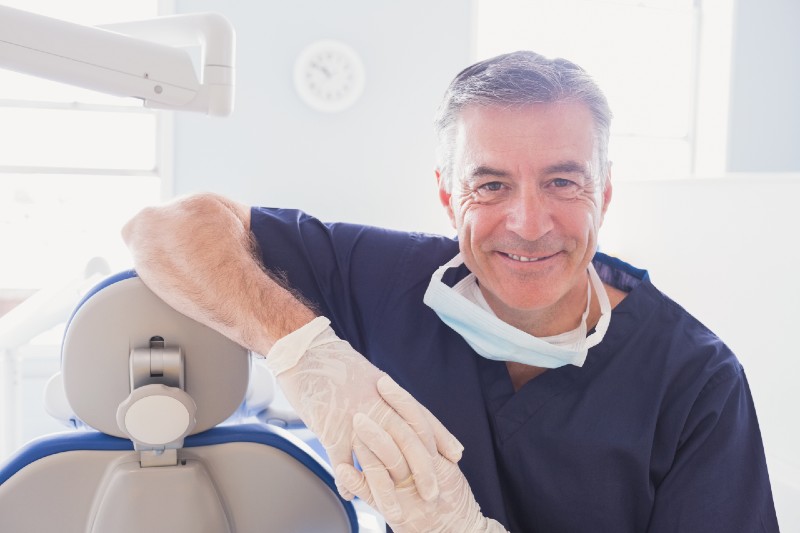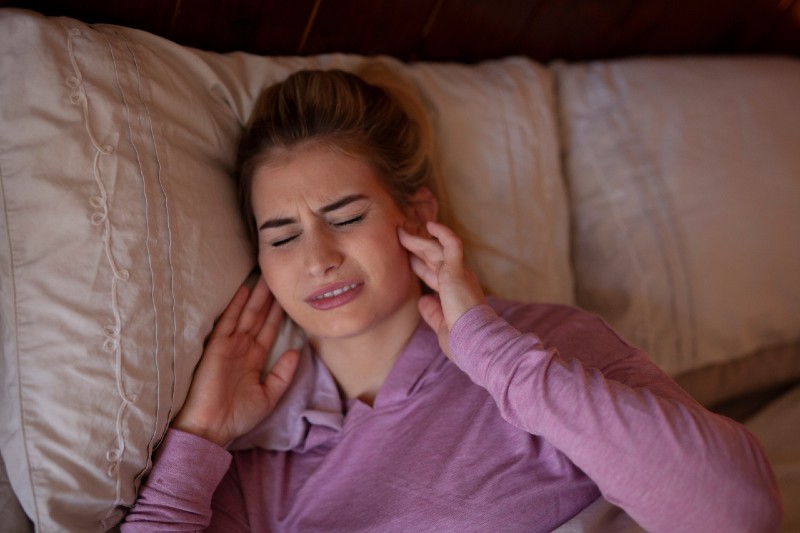It’s pretty common knowledge that regular dental check ups are recommended to ensure any issues with our teeth are treated before they become worse. Most people associate dentistry with better oral hygiene, treating tooth decay and discomfort and cosmetic dentistry such as realignment or tooth whitening. As such, its’ not uncommon for someone who is not experiencing any obvious issues to avoid visiting the dentist unless symptoms suggest there could be a problem. Common reasons for not having regular dental check ups include:
“It’s too expensive”
“I’ve never needed a filling before. I’m obviously cleaning my teeth well enough”
“I don’t have any pain or problems”
“I’m happy with the way my teeth look”
“I hate having dental treatments”
Like it or not, there are actually a lot of benefits in seeing your dentist regularly because there are a number of things that dentists can help you with other than your teeth.

1. Oral cancer screening
It seems that we all know someone who has had or is currently being treated for some sort of cancer. As with all types of cancer, early detection is often key to effective treatment and better outcomes. Head and neck cancers incorporate malignant neoplasm of lip, oral cavity, pharynx, respiratory and intrathoracic organs. Recent statistics rank head and neck cancer as the 7th most common cancer in Australia.
What is oral cancer?
Oral cancer describes a number of cancers occurring in the region of the mouth, including the tongue, floor of the mouth and lips. It can also occur on the gums, roof of the mouth (palate), cheeks, saliva glands and tonsils. In Australia, almost 60% of oral cancer is caused by smoking and around 30% by excessive alcohol consumption. We also have high levels of lower lip cancer, which is linked to large amounts of UV exposure. Poor dietary habits, infection with some types of the human pappiloma virus, gum disease and poor oral hygiene have also been linked to the development of oral cancer.
How do dentists screen for oral cancer?
Many dentists incorporate an oral cancer screening as a part of every routine dental check up. It involves a careful visual examination of the gums, lips, inside of cheeks, roof of the mouth and under the tongue. Their keen eye can often mean early detection before you may have noticed any signs or symptoms yourself. Your dentist may also have a feel of your jaw and neck for any unusual bumps or lumps. Ask your dentist if they carry out oral cancer screening as part of their patient care.
2. Jaw Pain
Headaches and jaw pain are quite common and can be caused by lots of different things, but your dentist is a good place to start when it comes to investigating the cause.
What does jaw pain feel like?
Jaw pain is a term than covers several symptoms, including:
- Pain or discomfort when opening your mouth fully;
- Pain in or around the ear;
- Temporomandibular joint pain or clicking (TMJ Dysfunction);
- Difficulty chewing on one or both sides.
What causes jaw pain?
Temporomandibular joint dysfunction or TMJ Disorder is the most common cause of jaw pain. The temporomandibular joint is the point where the jawbone and the skull connect. When the muscles and nerves in this area are injured or inflamed, it can be very uncomfortable. The most common contributing factor to TMJ Dysfunction is clenching and tooth grinding. Grinding can happen for many reasons, including stress and disordered breathing. Other causes of jaw pain can be through direct trauma or injury, poor jaw and tooth alignment, arthritis in the TMJ and tightened facial muscles (often due to stress).
3. POOR QUALITY SLEEP AND/OR SNORING.
A recent report by the Royal Australian College of General Practitioners (RACGP) cited that about 60% of Australian adults report poor quality sleep on a weekly basis. There are many reasons for sleeping difficulties and insomnia, from poor “sleep hygiene” (bright lights before bed, drinking alcohol in the evenings, caffeine etc) to diagnosed obstructive sleep apnoea. Try talking to a dentist about your sleeping difficulties. You may be referred to seek further data by undergoing a sleep study, but your dentist can also offer advice on good sleeping positions or fit you with a customised splint to improve your jaw alignment and breathing or to ease the pressure on your jaw if grinding and clenching is a problem. If snoring is causing you (or your partner) to have interrupted sleep, there are several ways a dentist can assist with this as well.

4. chronic disease prevention.
Did you know that gum disease (sometimes referred to as periodontal disease) has been linked to Alzheimer’s Disease and related dementia, heart disease, diabetes and even erectile dysfunction? The mildest (and most common) form of gum disease is gingivitis. It can be recognised by inflamed or reddened gums, bad breath or bleeding when brushing and/or flossing. Gingivitis is usually quite simple to avoid and treat, with improved oral hygiene and regular, professional cleaning by your dentist.
When gum disease goes untreated, it can progress to periodontitis. This advanced type of gum disease can cause the gums to pull away from the teeth, creating pockets that trap bacteria and cause increasing issues. This condition can lead to tooth loss and cause a myriad of problems, which have been linked to an increased risk of developing or worsening serious chronic health conditions. A periodontist is a dentist who has undergone specialist training in the treatment and management of gum disease. While all dentists can identify and treat gum disease, in some cases, a patient might be referred to a periodontist for specialised treatment.
5. Your Sex Life
Bad breath (also known as halitosis) is a sure-fire way to bottom out on a first date. If you (or someone you know) suffers from bad breath, it can really affect the way others interact with you socially. Halitosis is more than a garlic hangover from last night’s pizza restaurant – it is a distinct and unpleasant odour that is regularly there and it usually strong enough to be noticed by others.
What causes bad breath?
Bad breath is usually attributed to poor dental hygiene with infrequent or ineffective brushing and flossing. The smell can be caused by:
- Trapped food built up on the tongue and between the teeth;
- Accumulation of plaque and bacteria;
- Gum disease;
- Untreated tooth decay or dental abscess;
- Xerostomia (dry mouth);
- Food or beverage choices;
- Hormonal changes;
- Side effects of certain medications.
Your dentist can assist with treating halitosis and improve both your oral health and hopefully your social life. Snoring is another common cause of tension in intimate relationships and is often something your dentist can help you with as well.
Remember, 6 monthly check ups at your dentist is what’s recommended in order to prevent build up of too much plaque, tartar and to get on to problems such as cavities while they are still minor. Early detection means less discomfort for you and less pain in the hip pocket as well! If your local dentist isn’t able to help you with some of the issues mentioned above, seek out one who can, or who can suggest the next step in finding a health professional who can. Issues such as jaw pain and snoring can sometimes be improved with the help of physiotherapists, dieticians, ENT specialists, psychologists or acupuncture. There are a range of local dentists and health professionals in the Illawarra that you can tap in to for their expertise.




